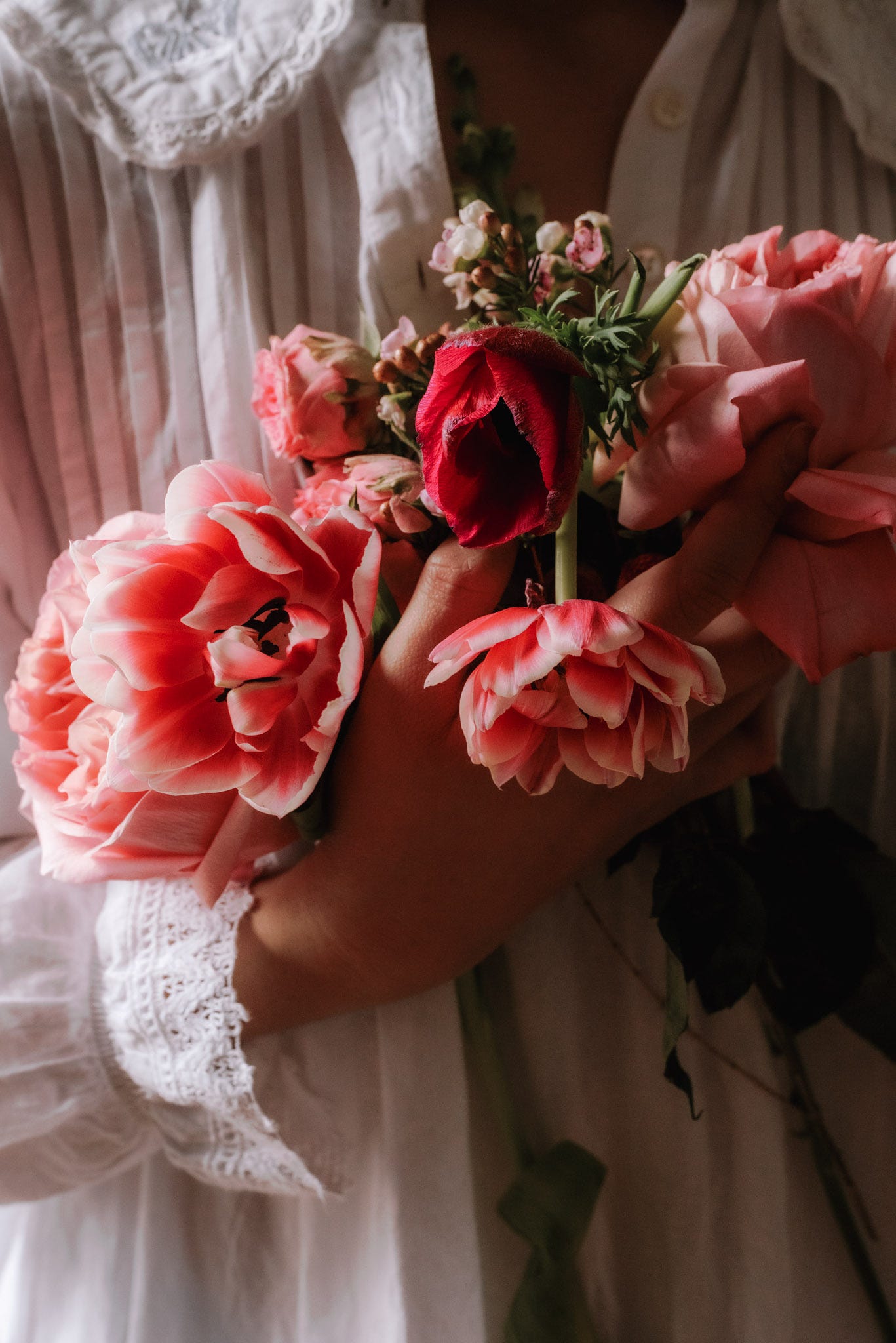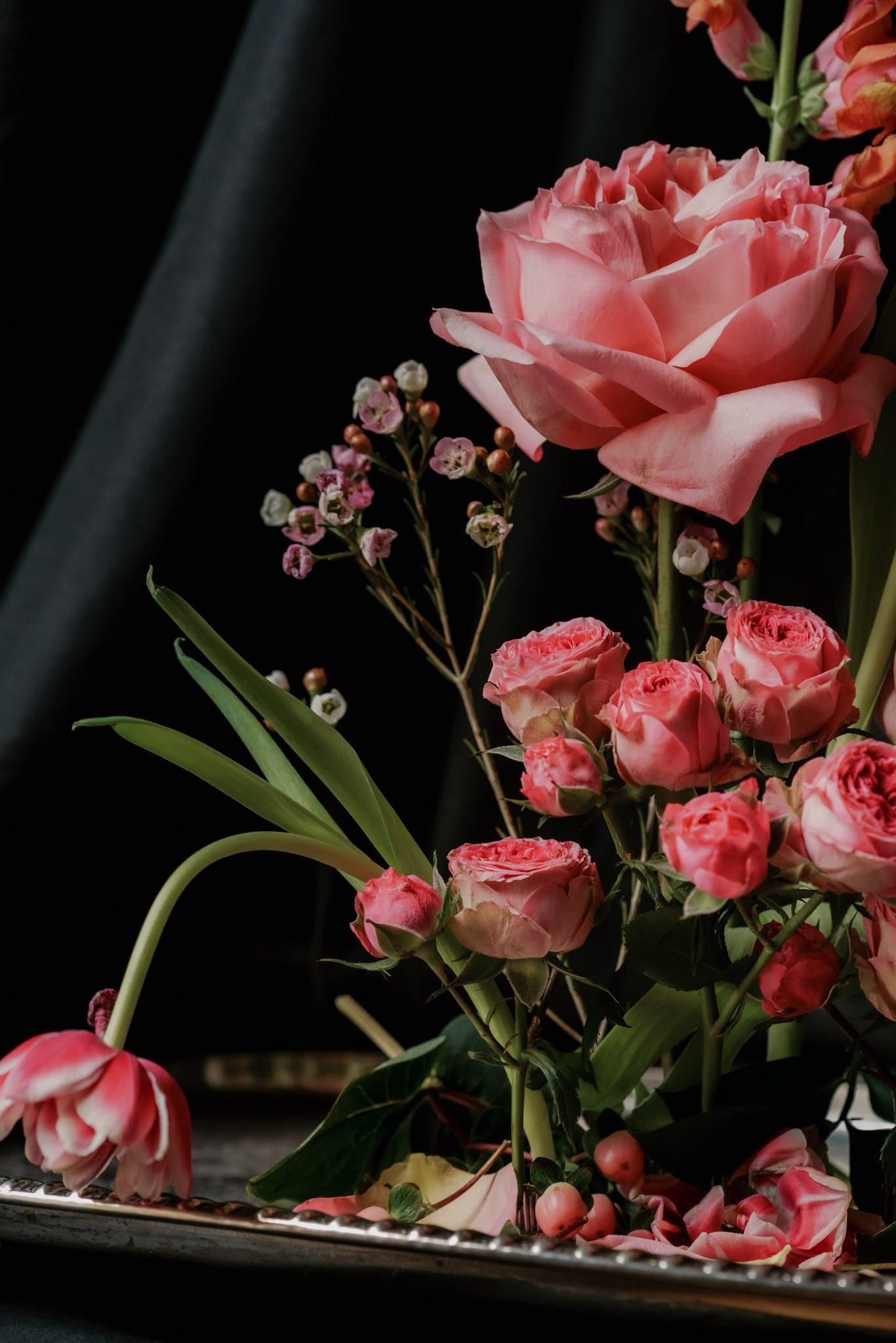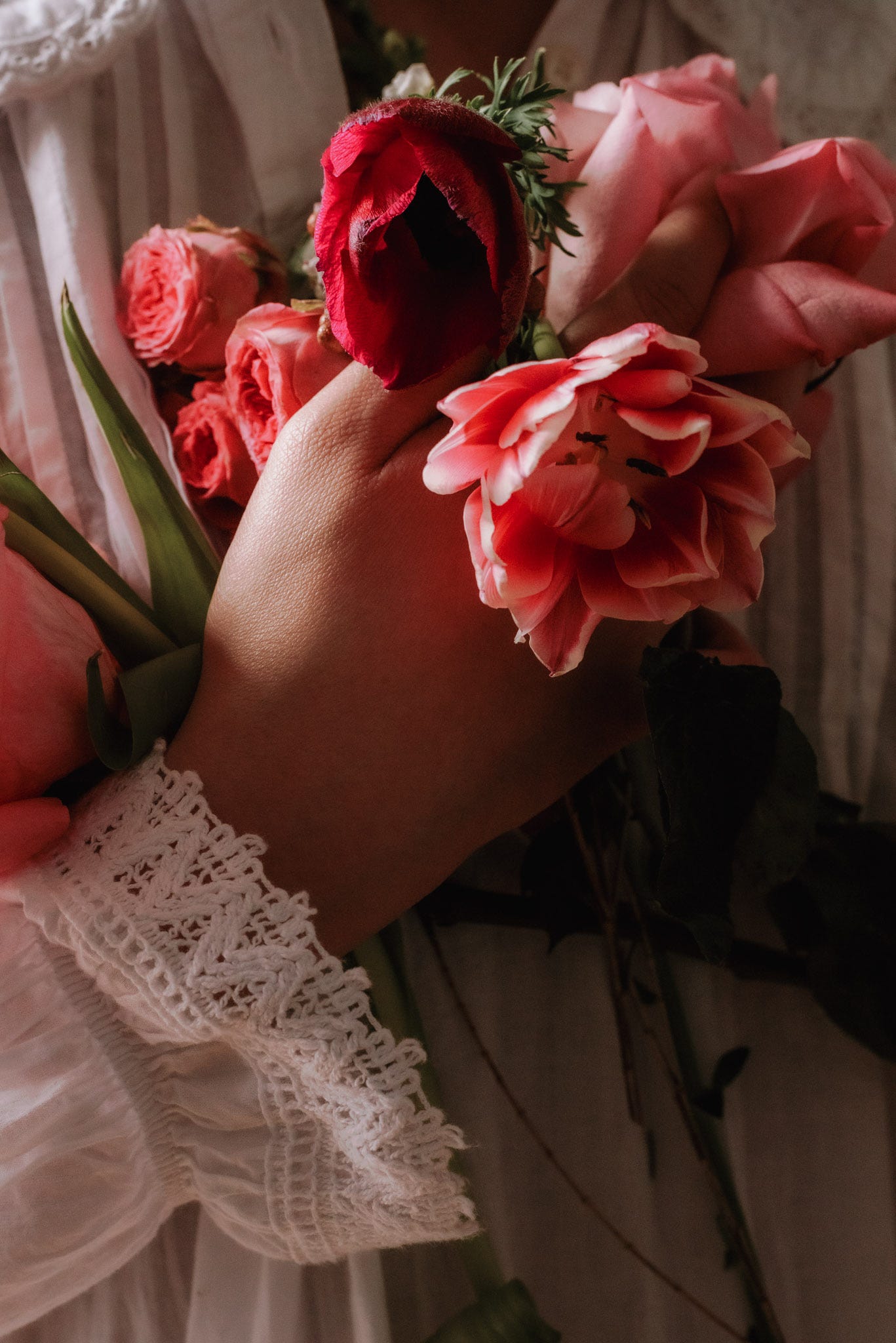This is February’s floral self-portrait, which I errantly never published in the chaotic migration to Substack. The flowers came from a Valentine’s Day press event, and not wanting them to go to waste, I photographed them.
“I can feel my body’s ability to make a child draining out of me.”
A few weeks ago, I stumbled on Tracee Ellis Ross’ interview in “We Can Do Hard Things,” a podcast by Glennon Doyle. That was line the internet couldn’t stop quoting. It bubbled up questions long simmering in my mind. The first reading pierced me, I think I hiccuped a breath.
What makes a woman? Beauty, fertility, marriage, career? Something else? Everything else?
I have been wrestling with the question of womanhood for some time now. What makes us? What makes me? The youthful beauty that will soon fade? The ability to have a child I’m not sure I want, that will eventually diminish, too? My intellect? My accomplishments? My independence? This bouquet is a metaphor for womanhood and its complexities and textures. Some of us are budding, others are in bloom, and still others are beginning to droop. These flowers manage to encapsulate a lifetime.
Since the 1950s, pink has been a perplexing spokes-color for the female sex in all its vivacious, vibrant hues. Beneath the veneer of uniform playfulness and eternity, though, is a determined—if quiet—individuality. Voluptuous garden roses, spritely sprays, structured Hypernicum berries, anemones with intense, wary centers and generous double tulips. One of my favorite photographers wrote that we are like flowers: Vastly different but so much the same.
Womanhood pushes us from budding promise to the urgent reality of our new being: Ephemeral, imperfect, fading, fighting, juxtaposed by the girlhood we leave behind—and long for, perhaps. Part of us longs for the love that is freely given to youth, despairing at the indifference in the desecrated path of age. Jennifer Coolidge and Michelle Yeoh are having a moment right now, and while I’m glad—elated—to see it, the latter hit the nail on the head in her Golden Globes speech: People forget about you as you become older. You become less desirable in every facet. These two women are more anomalies rather than a new status quo. Men have the exceptional privilege of being evergreen trees. Why must we women wilt?
We are in a post-feminist wave but still on some instinctual, basic level, these things we say do not define us still somehow manage to. At night, I lay awake, pondering. What if I never get married? What if I have no children—the thing that makes me, on the most basic, biological level, a woman? What if I never have a “great career” (cough—win a Pulitzer Prize—cough)? What if I don’t do this all before I turn 35? What if I never do any of it? What will I be?
Maybe one day I’ll make sense of the jumble that is womanhood. But I hope that when I do, I will believe that it is I who defines it, and that it does not define me.








